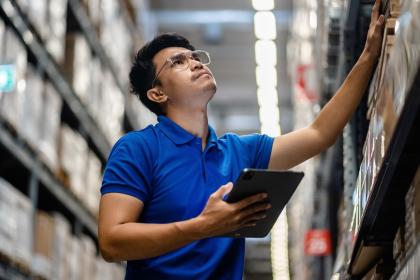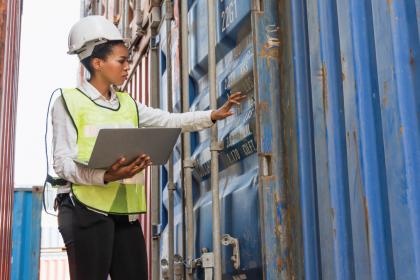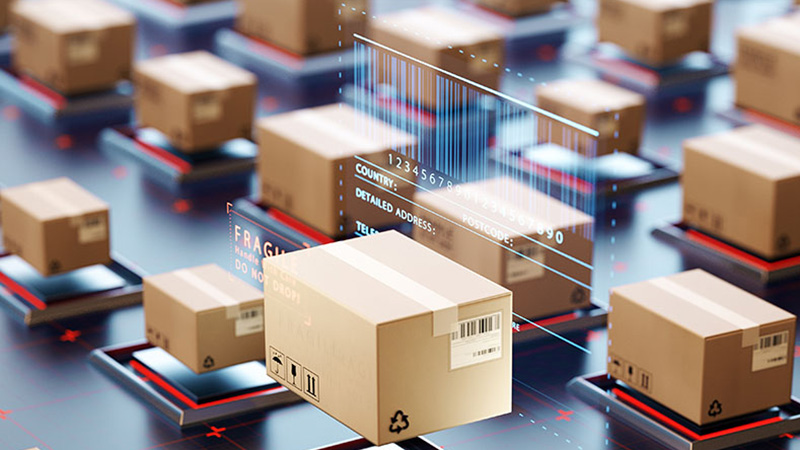Trade costs are a major issue in international trade. They determine competitiveness, which is fundamental to participating in international trade activities. With various developments around international trade rules resulting from successive trade agreement negotiations at the global, regional, and bilateral levels, tariffs for international trade have fallen to historically low levels, leaving non-tariff measures such as logistics and customs procedures as the main stumbling blocks to international trade. The rise of the COVID-19 pandemic in a deeply interconnected global economy, has led to several disruptions across global supply chains, trade, and travel across borders. Blockchain technology presents an opportunity to further enhance efforts at trade digitalization and support in mitigating the socioeconomic impacts of the crisis.
Blockchain enables automated, secure and efficient information sharing to ensure the efficient implementation of Mutual Recognition Arrangements/Agreements. It enables participants to digitally connect, share information and collaborate across the shipping supply chain ecosystem. Governments, and regional and international organizations can play a key role to build-up the necessary ecosystem for engaging all stakeholders, addressing actual or perceived risks, and ensuring that blockchain can effectively support sustainable and inclusive development. The cost of moving goods across continents could drop dramatically, adding fresh energy to relocate manufacturing or source materials and goods from overseas. According to the World Economic Forum, the benefits wouldn’t be confined to shipping. Improving communications and border administration, using blockchain could generate an additional $1 trillion in global trade .
This project brings together UNESCWA and the four other UN regional commissions for Africa (ECA), Europe (ECE), Latin America and the Caribbean (ECLAC), Asia and the Pacific (ESCAP) as well as UNCTAD. Thereby, it ensures both global reach and regional presence, international cooperation, and exchange of knowledge and good practices from all over the world.
Objective
This project aims to help government officials of developing countries to:
- Understand legal and regulatory requirements for using blockchain in trade facilitation
- Understand how to implement blockchain successfully for trade facilitation and crisis resilience.
Activities
The activities of the project include:
- Prepare a Global report: Blockchain and its implication on trade facilitation performance (including the trade control agencies) and trade operations
- Prepare a Guide to apply blockchain technology in trade facilitation operations (Customs and other trade control agencies) and trade operations
- Prepare an online version of the guide and the online readiness checklist for self-assessment
- Develop training on blockchain in trade facilitation for decision-makers of developing countries and institutions
- Organize a Global Workshop to present and discuss findings from the global report and showcase good practices and lessons learned
- Organize five regional capacity-building workshops
- Assist five pilot countries in moving forward in the application of the use of Blockchain in international trade
- Organize two national workshops by the pilot country for trade and trade-related officials
Intended Outcomes
The project will strengthen national innovation and technological capacities related to the use of blockchain technology in customs and trade operations in five selected developing countries, to boost trade and enhance competitiveness in support of sustainable development. More particularly, the project will contribute to increasing national awareness of the importance of blockchain in trade facilitation through tailored capacity-building activities on how to effectively adopt and deploy blockchain technology. Once implemented, the technical support programs will significantly help spread blockchain technology in the pilot countries and its use in international trade, drawing on the lessons learned from the development and implementation of this technology across the globe. The pilot countries, similarly, to most developing countries, cannot remain on the sidelines when it comes to increasing the quantity and quality of trade flows between countries in the region and with the rest of the world.
Link to the SDGs
The 2030 Agenda for Sustainable Development defines international trade as “an engine for inclusive economic growth and poverty reduction, [that] contributes to the promotion of sustainable development”. In this context, international trade is expected to play its role as a means of implementation for the achievement of the SDGs. In addition to SDG 17 (in particular target 17.6), the project will also directly contribute to most of the SDGs. The list includes the following goals and their specific targets: SDGs 1 (target 1.4), SDG 3 (target 3.8), SDG 5 (target 5.c), SDG 6 (target 6.a.), SDG 7 (target 7.2), SDG 8 (target 8.3); SDG 9 (target 9.4), SDG 12 (target 12.1), SDG 13 (target 13.3) and SDG 16 (target 16.9).
Monitoring and Evaluation
The project will establish a Result-Based Monitoring (RBM) mechanism to ensure timely identification of implementation challenges and provide support in addressing them. The day-to-day monitoring will be done by the project officer in coordination with project focal points within each partner organization and the national focal points in the pilot countries.



